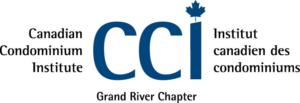Managing Finances and Board Responsibilities
Is your condo board lucky enough to have an Accountant among its members? Probably not. Although your property manager may do most of the heavy lifting, the Board of Directors are 100% responsible for the budget, the document that defines your corporation’s fees. Creating and reviewing the budget each year helps boards understand where the money goes and ensures there are enough funds available to cover upcoming costs.
A budget is an estimate of how much money will be required and where it will be spent in the following year. It will never match reality exactly, but getting close ensures smooth financial operations for the coming year.
A budget should be realistic and consider known costs, new planned expenditures, some unexpected spending, and any deficit or surplus from the previous year. These planned expenditures will become the basis for the monthly fees.

Some known expenses are easy to plan as they are fixed or predictable. Property management and other annual contracts often define the exact costs, including annual increases. Some expenses, like insurance premiums, can usually be estimated accurately. Your insurer or property manager should be able to identify what typical increase to expect. Remember that you can always contact some service providers for an estimate of what they will be charging for the upcoming year. This helps to make things as accurate as possible.
Other known expenses are more variable. Increases in utility rates are published several months in advance, so exact increases are often available. If they aren’t, they can usually be anticipated reasonably well. However, utility consumption changes from year to year, varying with weather conditions or changes to your building.
A good approach is to plan utility consumption based on the previous two or three years of experience, with a slight bias towards higher consumption when there has been a lot of variability because of something like an unusually warm winter. Another thing to consider is whether there are any changes in building systems (water or energy savings programs or equipment replacements) that may change utility consumption. You can always request a 5 year trial balance from your auditor or property manager to help you visualize these trends.

A crystal ball would help when planning routine repairs like addressing plumbing leaks or door issues, as these tend to be unpredictable. We look at history over the past several years and make our best guess, again with a slight bias towards a higher amount if there has been a lot of variability.

Everything covered above is required. You can’t choose not to pay your utility bills or to cancel your insurance because your fees are high. The goal above is to estimate the non-discretionary spending accurately. If the budgeting process highlights that your water costs seem unreasonable, the process might prompt your board to look into what options are available to bring down those costs. However, don’t yield to the temptation to limit this year’s fee increase by setting an unrealistically low budget based on hope.
With dramatic cost increases in recent years, most boards are reducing discretionary spending, but there may be items you have planned that will add to your costs. Whether you expect to complete kitchen stack cleaning next year as your building is at that age, or you’re planning on new security measures to address a more challenging security environment, it is important to account for those costs.
The board may also want to consider a contingency line item. This accounts for any unanticipated expenditures that could arise during the year. If unused, this would add a surplus to the fund, that may mitigate a significant fee increase the following year. Budgets do not have to be balanced, and should reflect the board’s plan for the year. If the corporation is experiencing cash flow problems, then the budget should reflect more income than expenses in order to get the corporation back into a positive cash flow.

This brings us to the final item. Since a budget is an estimate of future spending, there will always be a difference between budget amounts and actual spending. Reviewing monthly financials is essential to ensure the corporation is on track with the board’s plan for the year. Plans may change mid-year if more spending occurred than originally planned. Regular reviews of the actual spending versus the budgeted amounts throughout the year also help determine the chances of a meaningful deficit or surplus at year-end that should planned for in the next budget.
If you enjoyed this blog and you are interested in learning more, we are holding a lunch and learn session at Bingeman’s on February 20th where we will discuss managing condo finances and board responsibilities in more detail. Hope to see you there!

Written By: John Hayes, Condo Owner & Shalon Chapman, Auditor, RLB LLP






